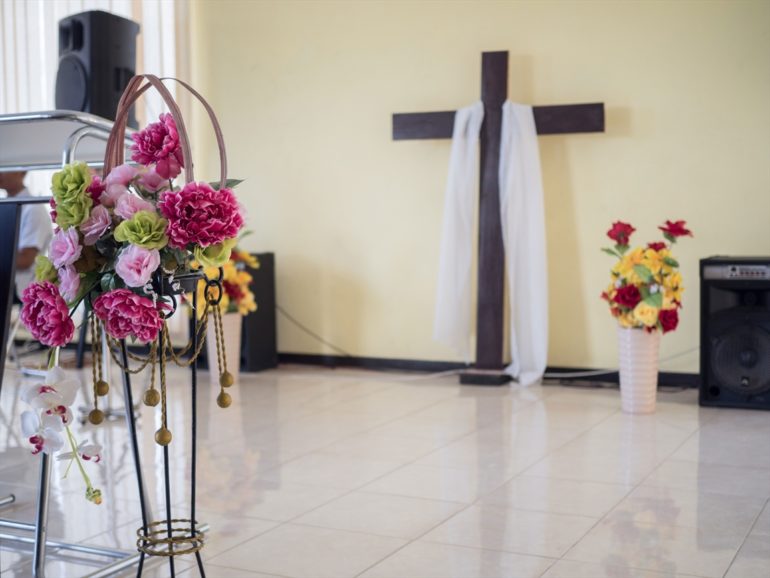
The removal of a cross on the grave of a Catholic before he could be buried in an Indonesian public cemetery has been condemned by the country’s church leaders, reports the Catholic news agency UCAN.
Albertus Slamet Sugihardi died in the village of Purbayan, in the province of Central Java. His funeral was to take place in a public cemetery on 17 December but became the centre of a row that hit international headlines when Muslim villagers said the cemetery was especially for Muslims and therefore the upper part of Sugihardi’s burial cross was to be cut off.
The Semarang Archdiocese condemned the incident, according to UCAN. It was “a violation of the constitution that contradicts the state’s ideology of Pancasila“, which respects diversity, it said in a statement.
The Catholic’s burial in a majority-Muslim cemetery had been an “emergency” Bejo Mulyono, a resident, told The Jakarta Post, adding that “he could be buried here, but there should be no Christian symbol”.
Sugihardi’s friends and family were also not allowed to gather for prayers at his house, saying this should be done at his church, the nearby Pringgolayan St Paul Church.
Bejo said that this was to avoid conflicts between them and residents who had problems with their religious activities.
“Our village is tolerant, except for religious rituals,” he said.
According to the Muslim residents, Sugihardi’s family had approved to the cross cutting but the Semarang Archdiocese’ Commission for Justice, Peace, and Integrity of Creation told UCAN his wife was told to sign a letter after the incident in an attempt to calm the emotions that were running high after the news about the incident broke on social media and went viral.
“It was another example of “growing and deepening religious intolerance” in Indonesia,” said Fr. Paulus Christian Siswantoko, executive secretary of the Bishops’ Commission for the Laity. “The government needs to address the issue immediately, before it spirals out of control,” he told UCAN.